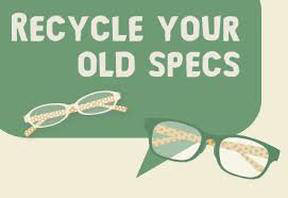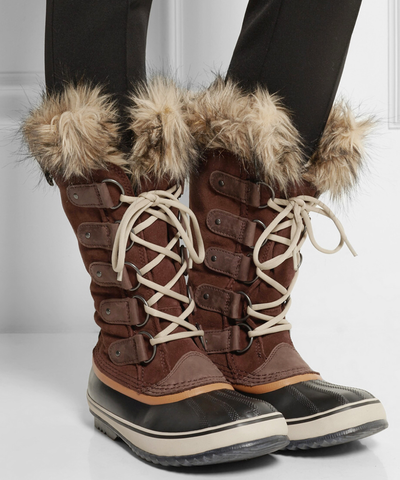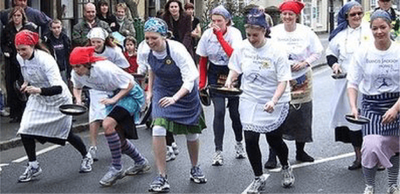|
Money makes the world go around; money money money it's a rich man's world; the best things in life are free but you can keep 'em for the birds and bees, Now give me money, that's what I want.
So many famous songs and so many stress our need for money. Until economic collapse or other major issues change the way we work we all need money. For most of us money is in sort supply and hard earned. Getting the best out of your money is important. Can you afford to save or rather can you afford not to? Bank interest rates are low and hardly encouraging but it never makes sense to live hand to mouth unless you really have to. Many people experience times when money supply is very tight. Having some money to fall back on is important. Personal experience, with no family able to help, meant we learned to survive and steer well clear of serious debt trouble from a young age. So although we do not always get it right, here are some ways discovered over the years to increase your savings. Economise, work out your budget and save as much as possible Firstly you need to know just how much money you have coming in each week or month and just how much is going out. It may be that there is more money left over each month than you had realised and you are just frittering it away. That however is doubtful but you never know unless you are on top of your finances. If this is the case begin a regular savings plan -- one which has the money deducted and transferred immediately into your savings account before you waste it. So, assuming that when you work out your budget you do not have a lot of money left to play about with, see where savings can be made. Sometimes just changing where you shop can save you plenty of money. You might also consider swapping which brands of stock items you buy; after all it's claimed that often the same product is in a packet of branded cornflakes and a non-branded one. Look at cutting back on luxury items, definitely stop buying fast food and having too many restaurant and take-away meals. You will probably lose weight with this one as you save the money. Make your own dishes such as pasta and lasagne rather than buying the more expensive frozen variety. Cut back on the amount of newspapers and magazines you buy. Many people merely glance at such written material and then consign it to the waste bin. You can read most of this on-line anyway. Look at swapping your fuel supplier and bank plus credit card and mortgage provider for a better deal. It is so easy to just carry on with your usual provider and actually lose lots of money. Transferring a credit card balance to a new provider can save you money. However, overall try to limit the use of your credit card or even get rid of it! Credit cards often tempt us to buy things which we would not normally purchase just because they make it easier to buy. If you are in serious trouble with your credit card take proper advice as you may well be able to have interest charges frozen or even wiped away. Try to implement savings around the home that will help the environment as well as your bank balance. Often if you are trying to cut down on expenditure these two go hand in hand. Turning the thermostat on your central heating down slightly, switching of appliances rather than letting them go into stand-by-mode, using energy efficient electrical equipment and light bulbs, and always running the power saving programmes on the washing machine and dish washer can save far more power and money than you can imagine. Work out a general plan to economise. Perhaps deciding to walk at least to or from work could save you money. If you live a long way from work look into the possibility of car sharing. You can often put feelers out regarding this via your workplace intranet or notice boards. Have a garage or car boot sale of all your unwanted goods. Consider taking on a little extra part-time work. Overall though THINK BEFORE YOU SPEND and SPEND WISELY Savings Now that you have streamlined your budget, and begun your economy drive, you hopefully will have more disposable income. Check out the Internet and your local bank for the best savings schemes. In England there are saving co-operatives and ISAs which are great places to keep your money. Individual Savings Accounts have limits - "For each tax year, there's a limit to the amount you can deposit into your ISA – this is your annual allowance. The allowance for the 2016/2017 tax year is £15,240, which you can invest in a cash ISA, an investment ISA, an innovative finance ISA, or a combination of the three." ISAs usually pay a better rate of interest and the fact that they are tax-free saves you money. Savings Co-operatives are often local schemes and aimed at helping the saver whilst giving great benefits. Have a coin pot around the home where you can all put your loose change. Over time you will be surprised how much money accumulates and this can then be banked. Look at investing some of your savings in stocks or shares and in premium bonds or your countries equivalent. Most government savings schemes are fairly safe and pay good interest. If you have a computer look at joining some of the review or survey sites on the Internet which will provide you with a little extra money to save. Consider mystery shopping where you may make a little money and receive goods into the bargain. Remember that old adage that ‘Great oaks from little acorns grow'? Even a small saving can help and you have to start somewhere, but often once you have the saving bug it is catching. The more you save and cut back the more you want to save and cut back. Just remember that you need to live and enjoy life also. Do not let your scrimping take over your life. Do not become miserly. Perhaps you could set a target of a years time and keep records to see how much money you have saved. If at the end of that time the effort was not too all consuming it may be that you have found a new and better way of life. More advice at This is Money
0 Comments
Pickpockets are a fact of life. If you consider Charles Dickens tale of Oliver Twist and Fagin, the man who led a gang of children who were trained sneak thieves, you will see it is not a new concept. Sleight of hand pickpockets have been around for a long time.
Some countries and cities have a bigger problem with such thieves than others. Here in the UK pickpockets have become a problem in London. As the cosmopolitan capital of England, London has busy streets and a large number of naive tourists always on hand. Most tourists have been foolish at one time or another. It is so easy to feel safe and comfortable on vacation. Relaxing in such a way in public can be a godsend for pickpockets. A mobile or cell phone, an IPad, wallet or open handbag can all seem like an open invitation to a crook. Some nationalities are targeted more than others and of course if you are wearing huge gold rings and flashing the cash you could set yourself up to be a victim of theft. A recent British Transport police campaign to alert visitors to London about the prevalence of pickpockets issued warnings. Campaign videos were posted showing the way that a pickpocket may manage to nick your possessions from under your very nose. Officers are deployed, uniformed and plain clothes, in busy train stations and on tubes and trains but there is only so much they can do. They need visitors to stay alert to potential pickpockets. We should act as we would in our home town but sadly many tourists forget to pack good sense in their travel luggage. Transport police confirm that the most common theft is a mobile phone followed by luggage. Pickpockets are skilled but also opportunistic. The more you make sure your possessions are secure the harder it is for them to succeed. London has gangs of pickpockets, some from abroad, who target obvious tourists. You can minimise your chance of this being you by some simple steps:
Do not let the thought of pickpockets deter you from enjoying a foreign vacation or visiting a busy city. Just make sure you are pickpocket aware. The chances are you will not be targeted but if you are make sure the pickpockets fail. Watch Transport Police campaign videos which show some possible scenarios As winter chills bite, heating costs increase. Do they really have to though?
But whether the price hike is necessary or just a rip off we all need some energy to heat our homes and more. How to keep winter warm on a budget starts with getting Value for money For most people money is hard come by. Working for a living can be tough, living on benefits even tougher, and there are so many drains on your income. Whilst some spends are essential it is possible to enjoy some of life's luxuries and still keep the wolves from the door. We should never be cold in winter Maintaining good health is vital and living in exceptionally cold conditions can damage your health. If nothing else it is miserable. If the atmosphere becomes damp, as well as cold, you and your family could have chest and breathing problems. So how to keep warm without racking up huge energy bills? Compare and switch Not all energy providers offer the best deal. Use a couple of online comparison websites in order to find the best deal available. Bear in mind though that some comparison websites are not independent. Rather they have a vested interest in recommending certain energy providers. Make sure that you check more than one source. Research options available through cash-back sites for an extra bonus. There are some great deals around right now. Take your time, choose well, then switch your energy provider. If and when their prices increase switch again. Small changes can make big savings Assess your home for energy efficiency. It does not have to cost a fortune to make positive changes. Draught-proof doors, windows, skirting boards and anything else necessary. If you minimise energy waste you will be able to afford to heat your home properly. Close drapes on an evening to retain heat in your home. Set thermostats for appropriate heat. It is not necessary to have your central heating set high all day and all night. What is the point of having heating on when you are not at home? Check the settings of fridges and freezers. In winter they can be turned down a notch. Do not leave televisions and similar equipment on stand by. Switch off at the main plugs in order to save energy. This helps the environment and stops you wasting money. Energy bills can be high in winter without unnecessary extras. Wear an extra layer of clothes. These days it is recommended that plenty of thin layers are worn to keep warm. This is much better than one thick sweater. Switch of lights in rooms that are not in use. Make sure you have energy saving light bulbs fitted. Overall Eating well will help you to keep warm as well as stay fit and healthy. In the long run then this will save you money. Drink plenty of warm drinks. It is best to make changes before the onset of the worst weather. If you buy heavyweight drapes in the summer they will cost less than in winter. Making changes to your home in summer, with winter in mind, could bring extra savings. When it is time to replace equipment such as freezers, washing machines, fires and other white goods make sure that you buy the best energy rated equipment you can afford. In the long run these too will also save you money. When the weather gets really cold make sure that you put your heating on. Economy is one thing but good practice and looking after yourself is a different matter. If you follow the advice here you should be able to afford to heat your home when the worst of the weather bites. The following money expert advice is updated daily and worth checking out; http://www.moneysavingexpert.com/utilities/you-switch-gas-electricity In the UK fireworks are no longer a once a year event. There was a time when fireworks were pretty much used for only very special events and November 5th Guy Fawkes celebrations. Not anymore. In 21st century Britain fireworks are often a feature of a birthday, anniversary or wedding celebration; New Year's Eve tends to be a spectacle of noise and light as the next year is welcomed in with a huge bang. Fireworks are great fun and can provide a wonderful spectacle but we should never be blase around them. When used to celebrate the July 4 in the USA, November 5 in the UK or the New Year around the world, they add pizazz and can ensure that the event is both memorable and spectacular. But we must never forget that fireworks can be dangerous, especially in the wrong hands. If you attend an organised event health and safety issues should have been addressed beforehand. You will still need to exercise a sensible approach though. If the firework display is to be a smaller community or home event, it could be that you will be responsible for making sure that the event goes off without a hitch. Common sense and the advice given in this guide will help your event be safe, as well as fun. Purchasing fireworks Always purchase fireworks from a reputable supplier. There are so many fake goods on the market these days it is dangerous to buy fireworks from an unknown supplier. Look for well known branded fireworks and make sure that you read the packaging for the manufacturer's storage and usage guidelines. Keep these guidelines in a safe place. Storing fireworks Fireworks need to be stored as recommended by the manufacturer. If you are organising a large firework display you may need a license. As a general rule fireworks should be stored in:
Children It is not safe for children to handle and light fireworks. Unless your country has legal age limits set, use your common sense and personal knowledge of the child involved. After all, some teenagers are sensible whilst others are not. Generally it is safer for young people to enjoy watching the display, whilst an adult, or adults, is the person responsible for the display. Make sure that children are aware of the potential hazards. They should be told never to handle the fireworks, especially once they are lit. Children must not be allowed to run about, close to the fireworks. Pets and animals There are always some exceptions to the rules, which means that some pets will be fine around fireworks. On the whole though, this is not true. You will need to ensure that your pets and animals are kept indoors, well away from the fireworks. The light and noise of a firework display can unsettle an animal, make them flee or cause them bodily injury. If necessary consult your veterinarian about calming medication for your pet to take before the firework display begins. The firework display If you are organising a large firework event you will need to check the rules and regulations with your local council. You will need to make sure that the fire service is informed, have stewards and fire extinguishers. Research the exact needs as these will be based on the amount of spectators you expect, the location and the length the display may last. For smaller home firework displays consider:
If your firework party has included a bonfire ensure that this is left safe and not smouldering dangerously You will need
Why collect?
Many people begin collecting particular items for a reason. Some think that their collection may hold the antiques of the future, others like to share their passion with similar enthusiasts, whilst some may collect as they are a fan of something or someone else. Take, for example, a die hard fan of the late Michael Jackson. Such a fan may have collected all things Michael Jackson from signatures, to music, to books, to clothes in styles like Michael's and more. Of course without even intending to make money such a collection can bring you wealth. Possibly a collection of Michael Jackson memorabilia could soon be worth a small fortune. It does depend however on what has been collected, the item's rarity and its condition. Other people just collect for the sake of collecting. These people may hoard all sorts of stuff in the hope that it may be useful one day or end up being priceless. Unfortunately much will simply end up as junk. Then there are collectors who have a fascination with something and want to collect related items. Often people are unsure how such a collection started. Collecting can be a fun hobby, pure and simple. Once that collecting bug has bitten it can be hard to break. THE FUTURE Just think about if you had collected something when you were young. Perhaps you did. As an adult you could have a great piece of nostalgia and personal history. You could even now have a family heirloom to be passed down from generation to generation. Train sets, Meccano, Lego, Enid Blyton Books, early Barbie dolls and lots more could be worth plenty of cash these days. They may be worth even more to you as fond and affectionate memories of your childhood. When my mother-in-law passed away the family were in for a surprise as they cleared her home out. Tucked away in a shoe box was a keepsake from each of her six children. One had died when he was a toddler but she had a keepsake from him included in this. It was a lock of each of their baby hair wrapped in tissue paper. She also had the girls plaits from when they had received their first short hair cut, into a more grown up style. At the time of finding these keepsakes the eldest child was 63 and the youngest was 51. How sad, poignant and touching for all concerned. Think about this if you are starting some sort of collection and pick an item or items that work for you and the reason for your collection. HINTS AND TIPS FOR COLLECTORS There are quite a few obvious, and not so obvious, things that will need to be considered before you start a collection. Here are a few hints and tips:-
IDEAS FOR COLLECTORS You can collect anything that you want. Some people collect the sick bags from planes. Unused of course. They collect these because they have specific images on them. Let your imagination run wild and think about what you enjoy. Sometimes the bonus with a collection is that it is useful. I have collected old buttons for years. I never discard any clothes to the rubbish or rag bag unless I have removed the buttons first. Some buttons are just plain and common but there are buttons that are hard to find, difficult to match, unusual or even antique. The bonus is that I always have a ready supply of buttons if I ever need to change any or if I am making something. I used to keep them in a small jar but have so many now they are in a few jars. HERE ARE A FEW SUGGESTIONS
Hopefully you are now inspired to start a collection which may become full of future antiques, family heirlooms or make your fortune eventually. Overall though remember the important points:-
https://www.theguardian.com/lifeandstyle/2014/nov/07/hunter-davies-guide-becoming-collectork |
Archives
March 2020
Categories
All
|


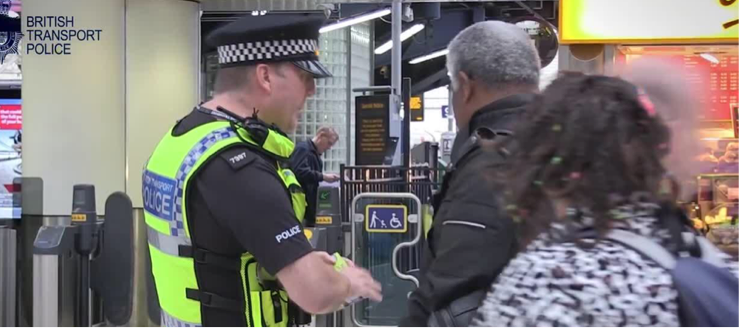
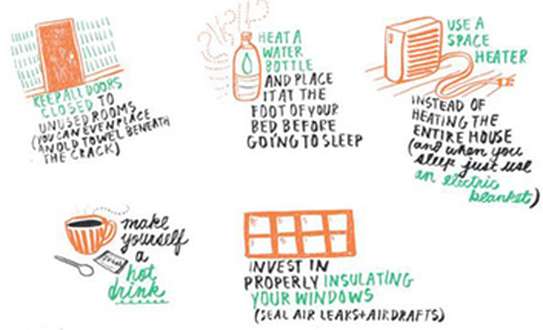

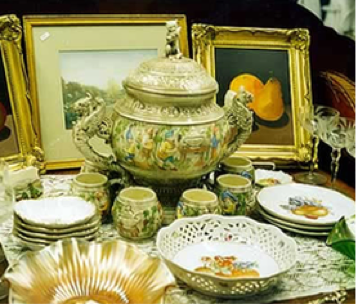
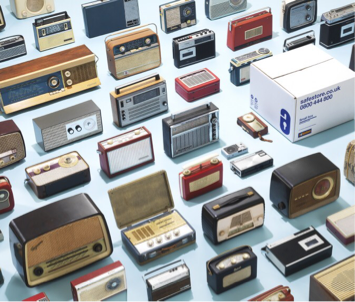
 RSS Feed
RSS Feed

